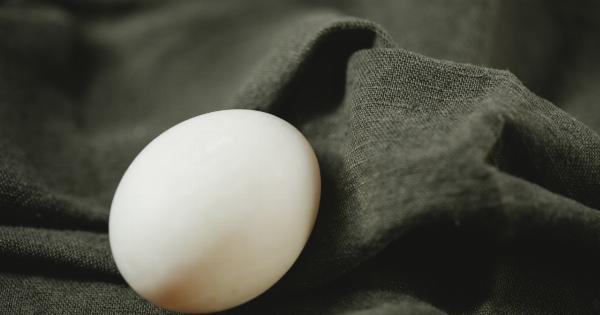Eggs are a well-known breakfast staple for many people. Whether you prefer them scrambled, poached, or sunny-side up, eggs are delicious, nutrient-dense, and versatile.
However, when it comes to eggs, many people wonder if they should eat the egg yolk or stick to egg whites only.
Egg Yolk: Nutrient-Packed
The egg yolk is the yellow, central part of the egg. It is where the egg’s nutrients are located. In fact, the egg yolk contains more than half of the egg’s total protein and almost all of its vitamins and minerals.
One large egg yolk contains:.
- 55 calories
- 2.7 grams of protein
- 4.5 grams of fat
- 210 milligrams of cholesterol
- 18 milligrams of calcium
- 18 milligrams of phosphorus
- 0.4 milligrams of iron
- 9.5 micrograms of folate
As you can see, the egg yolk is packed with essential nutrients like protein, calcium, iron, and folate. It also contains choline, which is important for brain health, and vitamin D, which is essential for bone health and immunity.
Egg Whites: Low in Calories, High in Protein
The egg white, also known as the albumen, is the clear, liquid part of the egg. It contains almost no fat or cholesterol but is high in protein.
One large egg white contains:.
- 17 calories
- 3.6 grams of protein
- 0.05 grams of fat
- 0 milligrams of cholesterol
- 5 milligrams of calcium
- 9 milligrams of phosphorus
- 0.03 milligrams of iron
- 1.3 micrograms of folate
Egg whites are a great source of lean protein, making them a popular choice among athletes, bodybuilders, and people looking to lose weight. They are also low in calories, making them a great choice for those on a calorie-restricted diet.
The Debate: Yolk vs. Egg Whites
So, which one is better for you? The truth is, it depends on your personal health goals and dietary needs.
If you are looking to increase your protein intake without adding extra calories or fat to your diet, then egg whites are a great choice. They are low in calories and are a great source of lean protein.
However, if you are looking for a nutrient-dense option that contains essential vitamins and minerals, then the egg yolk is the way to go. The egg yolk is packed with nutrition and contains almost all of the egg’s vitamins and minerals.
It’s also important to note that the cholesterol in egg yolks has been a point of contention for many years.
While it’s true that egg yolks contain cholesterol, studies have shown that dietary cholesterol does not have a significant impact on blood cholesterol levels in most people. In fact, eating foods high in cholesterol (like eggs) can actually increase your “good” cholesterol levels and improve your heart health.
The Bottom Line
Eggs are a nutritious and versatile food that can be part of a healthy diet. Whether you prefer egg yolks or egg whites, both parts of the egg offer unique nutritional benefits.
Ultimately, the best way to get the most nutrition out of your eggs is to eat the whole egg. If you are watching your calorie or fat intake, then egg whites may be a better option for you.
But if you are looking for a nutrient-dense option that is packed with vitamins and minerals, then don’t skip the yolk.
Remember, for most healthy people, the cholesterol in egg yolks is not a concern.
However, if you have high cholesterol or a history of heart disease, then it’s important to talk to your doctor or a registered dietitian about how many whole eggs you should be eating.





























